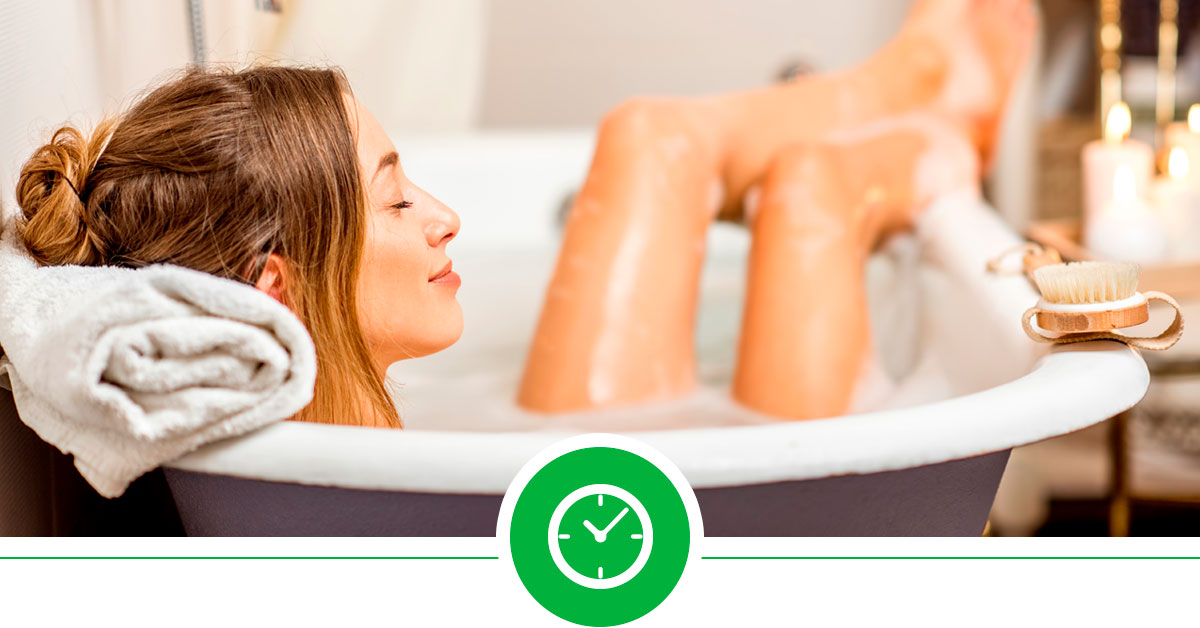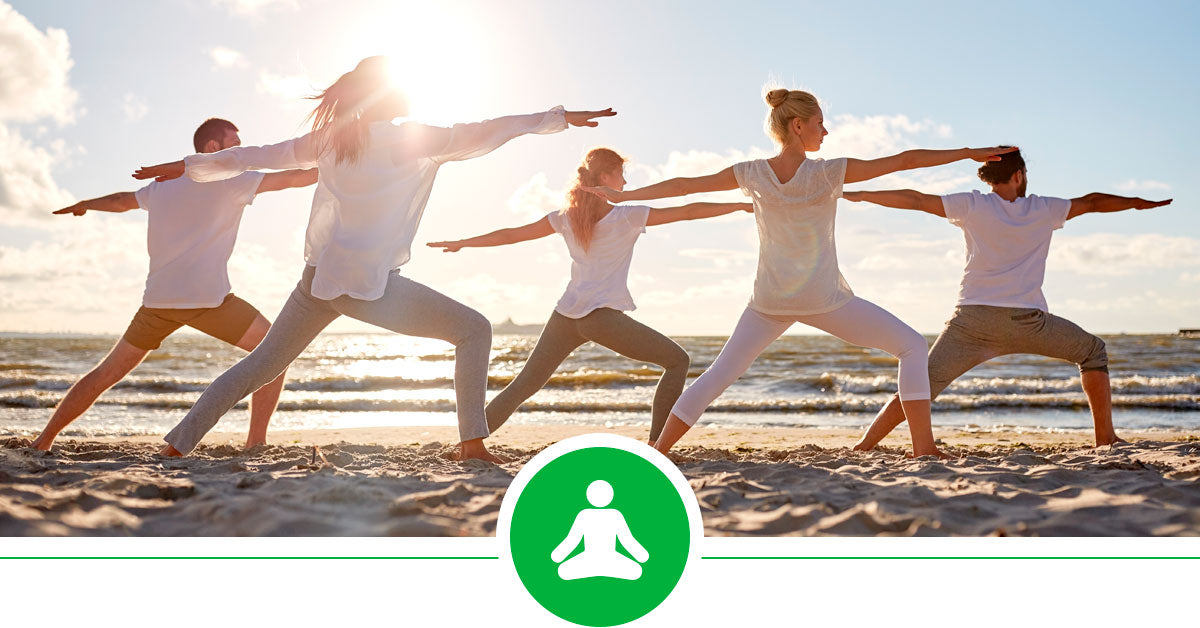
Some people may consider sleep as a setback or an unnecessary delay in their plans. However, even if you are terribly busy, taking enough time to sleep can literally save your day and make you more productive. Either if you’re looking for productivity or some time to relax, sleep is one of the most important activities in mammals and the majority of living beings.
But what happens during sleep, why is it important, and why are you having so much trouble getting asleep?

About Sleep & Sleep Problems
Sleep has been on the scope for years. Philosophers and scientists have made serious efforts to understand this activity, and more recently, neuroscientists have developed modern ways to study the brain of people when they sleep.
Many questions are still unanswered, but we do know that sleep is vital for neuronal recovery. It supports nervous activity, reorganizes neurons, repairs neuronal damage, and clears the brain from metabolic waste. Thus, it is fundamental if you want to learn, memorize, and keep on living (1).
You have probably experienced how a sleepless night makes it difficult to concentrate, gives you a feeling of drowsiness, and causes irritability. But there is also a clinical problem called “chronic partial sleep loss,” which is more common than insomnia and has similar consequences on the long-term (2).
If you are having insomniac, partially sleepless nights, or feel you’re not having enough resting hours at night, you might feel better by applying a few recommendations. We will break them down into three categories:
- Sleep rituals and sleep hygiene
- Drugs and natural treatment
- Easy lifestyle changes to follow

The Importance of Bedtime Rituals
Men are creatures of habit, and that includes our sleeping hours. As we grow older, our parents try to instill the habit of going to sleep early, and some of them used bedtime stories after tucking in and dimming the lights. The elements of the sleep ritual are different, but the majority of us slept better after listening to stories or songs we were used to listening around that time.
Even as an adult, it is possible to create sleep rituals that prepare the mind and tell your unconscious self it is bedtime. The ideal timing to implement these rituals is around one hour before your sleep time, and there are several options to choose from:
- Take a relaxing bath: In scientific research, the term is “water-based passive body heating.” According to studies, taking a relaxing bath or shower for 10 minutes, scheduled 1 hour before bedtime improves our sleep quality (3).
- Dim the lights: By dimming the lights, we are stimulating our body to secrete melatonin, a substance that improves sleep and helps us achieve a long deep sleep (REM sleep) (4).
- Turn off your devices: It is one of the best recommendations to teenagers and should be followed around one hour before sleep (5).
- Get a massage: A massage helps you relax, especially when performed by expert hands. This technique may reduce the time you need to get asleep (6).
- Try meditation: Meditation is one of the most widely researched tools for stress and anxiety, and it is beneficial to increase sleep quality and quantity (7).
- Use essential oils: Certain scents such as lavender help us manage anxiety, feel more relaxed, and improve the quality of sleep (8).
- Read a printed book: A useful habit to prepare yourself to sleep is reading a printed book, which is much better than e-reading to induce sleepiness (9).
- Listen to music: People with insomnia may benefit from listening to music, especially a type of music that induces relaxation (10).

Do You Really Need Drugs to Sleep?
You have probably not tried all of the recommendations we have mentioned above. By implementing a bedtime ritual, a significant proportion of insomniac people have improved their sleep without any drugs. Moreover, there are additional recommendations ahead that you can try, and only use drugs as an emergency alternative when nothing else works.
Overuse of benzodiazepines to sleep is a significant health problem, with several cases of overdose death, and growing sleep alterations. Instead of solving the issue in the long run, these prescription drugs make it worse still, and it was the third most commonly misused drug in the United States (11).
One of the safest approaches to treating sleeping problems is melatonin supplements, which are available in many forms. But there’s not enough data to know exactly how this drug works and more investigation in humans is required to reduce the adverse effects (unintended sedation and daytime sleepiness) (12).
Is there another safe alternative we can try?

Natural treatments for sleep problems
The advantage of using natural aids for sleep problems is that we will avoid the potential side effects of benzodiazepines and other drugs to treat insomnia. The majority are medicinal plants with sedative properties that you can drink at night in infusions and sleep teas. Some of them chamomile, peppermint leaves, lavender, and many others:
- Leaves of Melissa: It is also known as lemon balm, and it is useful to treat anxiety disorders that do not allow you to get asleep. It reduces symptoms such as palpitations and agitation, and both the taste and smell of this herb are found to be beneficial to calm down and find your inner peace (13, 14).
- Peppermint leaves: Aromatherapy with peppermint improves stress symptoms. Additionally, it is useful to calm down your gastrointestinal system and reduce abdominal discomfort, which sometimes impairs sleep (15, 16).
- Rose hips: An anti-inflammatory that relieves pain symptoms and allows you to relax for a good night’s sleep (17).
- Chamomile: One of the most powerful remedies against anxiety, chamomile is used to control the symptoms of major anxiety disorders and depression in adults (18).
- Fennel fruits: Along with chamomile and leaves of Melissa, fennel fruit extract is very useful in small children with infant colic. It reduces their symptoms in a very short period and allows them and their families to get back to sleep (19).
- Hibiscus petals: A herb with a significant stress-releaving potential, excellent for people who suffer from hypertension. It reduces the symptoms of agitation associated with high blood pressure (20).
- Lavender grass: Using lavender twice a day improves very severe anxiety problems, and reduces the recurrence of stressful thoughts that do not allow for quiet sleeping (21).
- Hawthorn flowers and fruits: A useful herb and fruit to improve mild to moderate anxiety syndromes. It is useful to calm down your body and mind before going to sleep (22).
- Lemongrass: It has an anxyolitic effect by activating neurons in the brain to release GABA, a type of inhibitory neurotransmitter that calms you down and promotes sleepiness (23).
- Cones of hops: An excellent aid against insomnia. People fall asleep faster by combining hops and other extracts. It helps insomnia and increases the quality of sleep (24).
- Flowers of linden: It has a strong anxiolytic and sedative effect, reducing stress and promoting sleep by triggering inhibitory activity in the central nervous system (25).

Lifestyle Changes & Recommendations
Besides having a fixed bedtime ritual and using herbal infusions, a series of easy lifestyle changes may also contribute to helping you achieve a restful night. The most significant changes you can implement are as follows (26):
- Use your bedroom appropriately: We should use the bed for two main activities: sleeping and having sex. Other than that, there’s no reason to watch television, work, and eat in your bed. If you use your bed to sleep, your mind will associate the comfort and special feel of your mattress with drowsiness, and you will not struggle so much to get asleep.
- Don’t force yourself to sleep: A typical question is what to do if you try everything and just can’t get to sleep. It is not healthy to feel growing anxiety to get asleep. If you do, sit up or go elsewhere, read a book, or choose a soothing activity to enjoy for a while. Then, get back to your bed and try to relax once again.
- Have a light dinner: Instead of a heavy dinner, reduce your intake a bit, and use dairy products, turkey, or cheese and crackers. They have tryptophan, an amino acid that your body transforms into sleep-inducing substances such as serotonin and melatonin.
- Reduce caffeine intake: Remember that caffeine is a stimulant of the central nervous system. So, cutting your caffeine intake is a wise step a few hours before going to sleep.
- Exercise often and at the right time: Exercising throughout the day is associated with better sleep patterns at night. If you go out and exercise in the early morning, you will also get direct sunlight and help your body regulate its internal clock. In time, you will feel your sleeping patterns slowly get back to normal.
Using all of the recommendations in this short guide will definitely achieve a gradual change. If they don’t have an immediate effect, it may take a while, and it depends on you to keep trying. The recommendations are the same, and there’s a lot to do before recurring to synthetic drugs with multiple side effects.

Highlights
- Sleep is fundamental in humans and the majority of living beings because it clears the brain from metabolic debris and promotes better brain connections.
- Using a sleeping ritual is very useful for getting better sleep. It usually starts one hour before bedtime and may include meditation, massages, dimming the lights, getting a hot bath, or reading a printed book.
- Instead of using synthetic drugs to sleep, we can opt for natural treatments that do not cause addiction, such as Valerian, St. John’s Wort, Magnolia, Rosemary, Ginseng, and Green Tea.
- Other lifestyle recommendations we can follow to improve our sleep quality include not using the bedroom for activities other than sleep, exercise often, not forcing yourself to sleep when you feel anxiety, reduce our caffeine intake and have a light dinner closely before sleeping.
Sources:
- 1. www.sleephealthjournal.org
- 2. www.karger.com
- 3. www.sciencedirect.com
- 4. www.tandfonline.com
- 5. search.proquest.com
- 6. onlinelibrary.wiley.com
- 7. nyaspubs.onlinelibrary.wiley.com
- 8. onlinelibrary.wiley.com
- 9. www.sciencedirect.com
- 10. www.sciencedirect.com
- 11. www.sciencedirect.com
- 12. link.springer.com
- 13. www.sciencedirect.com
- 14. psycnet.apa.org
- 15. synapse.koreamed.org
- 16. journals.sagepub.com
- 17. onlinelibrary.wiley.com
- 18. www.ncbi.nlm.nih.gov
- 19. onlinelibrary.wiley.com
- 20. www.ingentaconnect.com
- 21. www.sciencedirect.com
- 22. www.tandfonline.com
- 23. www.sciencedirect.com
- 24. www.ncbi.nlm.nih.gov
- 25. www.sciencedirect.com
- 26. www.sciencedirect.com
